Introduction
Healthcare is at the brink of technological change and at the core of it all is what people now refer to as smart health. Smart health refers to the integration of advanced technologies on health systems with medical care, better health outcomes, and proactive measures for individual health. From wearable devices that track fitness goals to smart disease management platforms, smart health signifies a transition to a more personalized, efficient, and data-driven healthcare paradigm. This paradigm enables the citizen and professional alike to make well-informed health decisions through real-time and advanced analytics support.
What is a Smart Health Monitoring System?
Smart health monitoring system is an integrated architecture of devices and technologies that collects health information, analyzes and transmits it. This involves use of wearables such as smartwatches; in-home devices like smart scales; and rather advanced AI-powered platforms that predict health risks.
It is the continuous and real-time data tracking that clearly distinguishes these smart health monitoring systems. The end-users have the comfort of monitoring heart rate, oxygen saturation, glucose, and even sleep patterns without much hassle. Such data generally has an AI algorithm that monitors it for early detection of any anomaly and preventive understanding, which helps avert any medical disaster. For example, it has become apparent that smart monitoring systems find more applications in controlling chronic illnesses requiring continuous surveillance, such as diabetes, or hypertension. Integrating such systems into healthcare makes patients enjoy personal health services without frequent hospital visits.
What is Smart Health Insurance?
Smart health insurance is an unbelievable innovation in wellbeing that drastically changes the perception of health coverage into dynamic, tech-dominated individual policies. Unlike the insurance model of past years, smart health insurance collects and utilizes the data from wearable devices and other health-monitoring tools to personalize and create a fairer system.
Take the person who regularly achieves his/her fitness goals as an example; he/she would possibly earn discounts or incentives for such achievements. Another way in which smart health insurance increases transparency is through the use of AI in the claims processing system, which minimizes paperwork and significantly decreases approval times. Some companies also provide applications that consolidate health-related data and insurance information with reward qualifications into one, user-friendly platform. Smart health insurance brings traditional financial protection into the realm of technology by providing coverage and meaningful incentives that will really push a person to change his/her lifestyle towards a healthier one.
What are Smart Benefits?
Smart benefits mean all-the-more extra advantages and other rewards which the users gain after adopting smart health technologies and services. These advantages often create a win-win scenario and develop means to induce added health behaviors as well as actual benefit for the users.
For example, the majority of wearables and connected apps tend to provide real-time health insights and personalized recommendations. Along with that, many smart health ecosystems integrate rewards programs, in which users earn points for fulfilling fitness goals that can be cashed in on something like a gym membership or purchasing wellness products, which eventually could offer a discount on insurance premiums. Healthy employees mean less healthcare costs and more productivity to the companies offering such benefits. The demand for smart benefits has led to the proliferation of corporate wellness programs to emphasize prevention in health care at all levels. Thus, smart benefits ensure redefining the healthcare landscape in such a way that the individuals are not only passive recipients of care but active participants in their health journey.
What is Smart Technology in Health?
Smart technologies, to bring healthcare improvement to mankind, include various devices and systems with AI, IoT, and machine learning functions incorporated to support healthcare delivery. These tools together increase accuracy in diagnosis, ease of managing patients, and a means through which healthcare becomes amenable.
Telemedicine is one of the prototypes that have seen large commercial applications over the years. With these smart technologies, patients can call doctors from afar and not only receive a diagnosis but also monitor progress with connected devices. AI systems powered by breakthroughs in their fields have been capable of analyzing medical imaging without any imperfection, thereby minimizing the number of errors during diagnosis. Other devices, like smart pills that were equipped with adherence surveillance capabilities, are other areas of this technology base. Smart technologies empower people, optimize workflows in healthcare provisions, reduce costs, and save on efficiency improvements on all fronts.
Conclusion
For or against, the very notion is being transformed into smart health in a way that moves whether individuals or healthcare systems to an entirely different paradigm approach to wellness. It achieves this via advanced technologies, such as artificial intelligence, the internet of things, and wearable devices, to elaborate an entirely personal experience of health and wellness. From monitoring systems and smart insurance to cutting-edge benefits and technologies, possibilities are endless. Given the dynamism of smart health, it is likely to turn high-quality healthcare accessible to and feasible for everyone, nurturing a future in which health management would be intuitive and empowering.
For or against, the very notion is transformed into ‘smart health’ in such a way that moves, whether individuals or healthcare systems, into a completely different paradigm approach to wellness. It achieves that by means of advanced technologies, such as artificial intelligence, the internet of things, and wearable devices, to elaborate a completely personal experience of health and wellness




